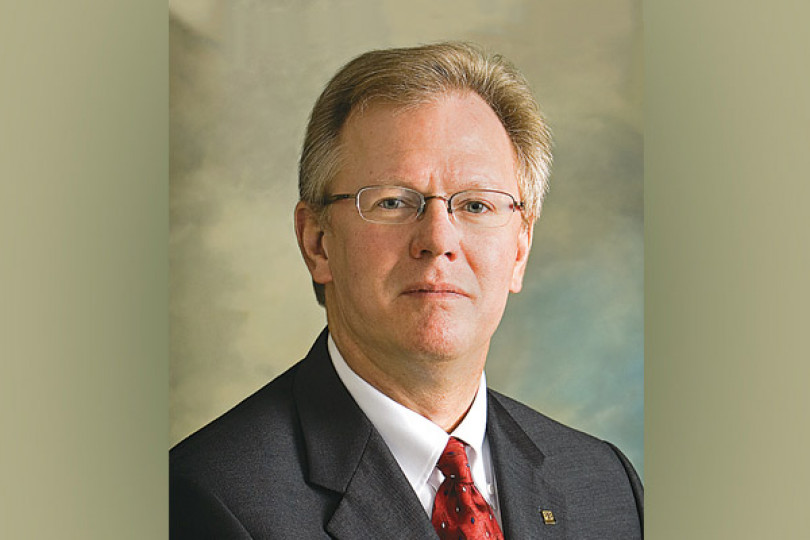Healthcare costs are out of control, killing jobs and destroying lives
IN JUNE, GENERAL MOTORS (GM) announced they would lay off 25,000 workers over the next three years. One reason they cited was the growing cost of health care, which now adds more than $1,500 to the cost of each new GM vehicle sold and is rising at doubledigit rates, according to an article in the Wall Street Journal.
And those costs aren’t rising just for GM. Every healthcare plan faces the same problem, including the Boilermakers Health & Welfare Trust. Across the country, companies are closing down factories so they can move their jobs to other countries, where healthcare costs are lower.
No matter where they move, they can reduce their healthcare outlays, because citizens in the United States pay more for healthcare than citizens of any other country. Yet our national health as measured by lifespans, infant mortality, prevalence of chronic diseases, and other measures does not measure up to that of other industrialized countries.
It is tempting to try to blame a single group or activity for the rapidly rising prices. Frivolous malpractice suits. Insurance companies. Greedy doctors. Hospitals that purchase too much equipment. Our aging population.
But the fact is that no single factor is powerful enough to do all this damage alone. All of these factors and more contribute to the crisis. Any workable solution will have to attack this problem on many fronts.
Making sure that all Americans have access to healthcare is probably the biggest step. The 48 million Americans who do not have any kind of healthcare insurance and, therefore, little or no access to healthcare drive up prices in two ways.
First, without insurance, families often can’t afford preventive medical care, maintenance drugs for chronic conditions, or regular physical exams. Untreated, even relatively minor health problems eventually become serious. People who do not monitor their health and health problems end up needing more care in the long run than those who can afford regular examinations and maintenance care.
It’s time our government made sure all middle-class working families have access to affordable healthcare
Second, when uninsured people do seek treatment, they can afford to pay for only about 65 percent of the total cost. The rest gets added to our insurance premiums. A study by Families USA shows that the 48 million uninsured are raising premium prices for families with insurance by an average of $922 a year.
Many people mistakenly believe that those without healthcare insurance are poor and are unable or unwilling to work. That’s entirely wrong. The poor qualify for Medicaid. People unable to work because of physical or mental conditions qualify for a variety of government programs. About 60 million people receive healthcare through some sort of government program.
The 48 million uninsured are found mostly in middle-class working families whose breadwinners have lost their insurance because they were laid off or because their employer could no longer afford to provide healthcare insurance.
Reducing the cost of prescription medicines should be another major goal for American healthcare policymakers. Most Americans realize by now that patented prescription drugs made in the United States often cost far less to purchase in Canada or other countries than right here at home.
They’re cheaper because the government of Canada negotiates for lower prices. The U.S. government does not. We allow drug companies to charge whatever the market will bear.
Drug companies often reap huge profits on their patented drugs. For example, makers of the popular cholesterol- reducing drug Lipitor enjoy a 24 percent profit margin on that drug. No doubt the high profit margins are enabled to some extent by their massive advertising effort. They pump 35 percent of sales revenue into marketing.
To be sure, dozens of other factors raise prices. Our lifestyles, including tobacco use, overeating, and lack of exercise, cause at least 400,000 deaths per year and cost us billions of dollars in treatments for heart conditions, stroke, emphysema and other lung conditions, diabetes, and numerous kinds of cancer.
And our compulsive consumerism raises prices when we always demand the latest treatments and the most technologically advanced tests. Do you really need a CAT scan for that occasional headache? Many people believe that if the insurance pays for it, they might as well get it.
And there are those much-maligned malpractice suits. Some politicians seem to believe that reducing your ability to sue a doctor who makes a mistake is the best way to control medical costs. In fact, malpractice insurance and malpractice lawsuits are a very tiny fraction of the total healthcare bill. We can work to reduce frivolous lawsuits as long as the reform does not put unnecessary limits on true victims of malpractice. The medical profession and insurance industry should also do a better job of targeting repeat offenders.
The healthcare crisis will not be easy to solve. No industry will, on its own, look for ways to reduce their own profits or make more regulations for themselves. But we know that government action can slow down the rate of increase, because that is exactly what happened in the 1990s.
In 1994, when President Clinton unveiled his national health care plan, the healthcare industries especially the insurance industry sprung into action and defeated it before it could even get through a single congressional committee.
But over the next few years the annual rate of healthcare price increases slowed down significantly. A coincidence? I don't think so. The mere threat of a national plan to regulate their profits convinced healthcare providers and insurance companies to ease off on the price increases.
Unfortunately, they’re back to their old tricks, and this time neither Congress nor the White House has even hinted they’ll do anything to get them back under control.
The American people deserve better. Every American deserves access to affordable, high-quality healthcare. We deserve no less than the citizens of every other industrialized country in the world.
Our tax dollars are already providing health care to the Americans whose healthcare demands are the greatest senior citizens and to those who pay the least in taxes the poor. It’s about time our government made sure that middle-class working families were guaranteed access to reliable, affordable healthcare.







